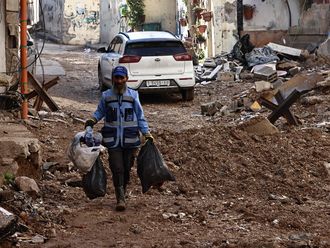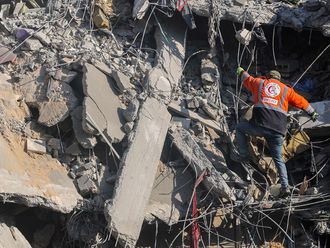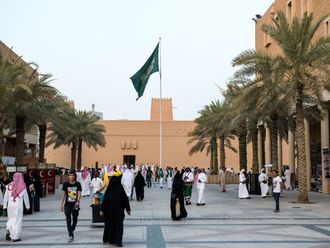Manama: Almost half of the people in the Arab world do not feel safe expressing political opinions online despite sweeping changes in the aftermath of the Arab Spring, according to new research.
Of over 10,000 people surveyed in Lebanon, Tunisia, Egypt, Saudi Arabia, Bahrain, Qatar, Jordan and the UAE, 44 per cent expressed some doubt as to whether people should be free to criticise governments or powerful institutions online. Over a third of internet users surveyed said they worried about governments checking what they do on the Internet, the research by Northwestern University in Qatar (NU-Q) said.
“The implied concern [of governments checking what they do online] is fairly consistent in almost all countries covered,” it said.
The study titled ‘Media Use in the Middle East — An Eight-Nation Survey’ was undertaken by researchers at NU-Q to better understand how people in the region use the internet and other media. It comes as the university moves towards a more formalised research agenda and is the first in what will be a series of reports relating to internet use.
The survey includes a specific chapter on Qatar, the only country where those surveyed regarded the Internet as a more important source of news than television. “We took an especially close look at media use in the State of Qatar — a country with one of the highest internet penetration rates in the Arab world — and internationally,” Everette Dennis, Dean and CEO of NU-Q, said in a statement emailed to Gulf News.
A preliminary report NU-Q released last April showed that web users in the Middle East supported the freedom to express opinions online, but also believe the internet should be more tightly regulated.
“While this may seem a puzzling paradox, it has not been uncommon for people the world over to support freedom in the abstract but less so in practice,” Dennis said.
The results of the survey, conducted in collaboration with Harris Interactive, were released on Tuesday at the International Communication Association (ICA) Conference in London.
Dennis said that the research report was the first in an annual series of reports produced in collaboration with the World Internet Project (WIP), one of the world’s most extensive studies on the internet, in which NU-Q is a participating institution.
NU-Q and WIP signed an agreement earlier in the year, providing a global platform for the current research.












